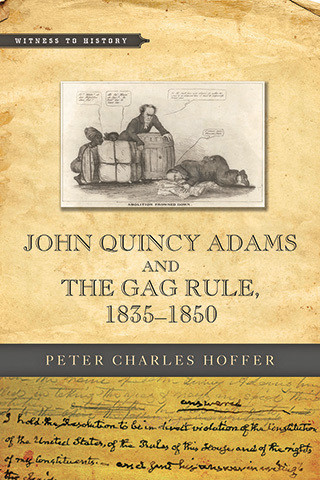
Reviews
For so slim a volume, there is much to admire. Perfectly balancing evidence with exposition and nicely illustrating the visual texture of the era through images, The Coming of Democracy is a welcomed contribution to the study of American political culture in its formative years.
A well-written and engaging book that draws connections between antebellum elections and those of the present. Many instructors will see The Coming of Democracy as a valuable teaching tool.
It would be difficult to overstate how much I enjoyed this book. Cheathem's clear, cogent prose made it a pleasure to read. The clarity of the writing and the admirable simplicity of its organization make it ideal for students.
Students and scholars owe Mark R. Cheathem a debt of gratitude for authoring this informative and engaging volume on the changing nature of political culture. His analysis of the evolution of campaign organizations, as well as the print and material aspects of that culture, provides a welcome and necessary perspective on contemporary politics.
Success in modern politics hinges on building a cultural connection, however superficial, between candidates and voters. In The Coming of Democracy, Mark R. Cheathem systematically describes the forging of this American cultural politics of 'electioneering' over the four presidential cycles leading up to the legendary Log Cabin campaign of 1840. Cheathem's work is an essential review for political and cultural historians, but will also prove accessible and entertaining for undergraduates.
Mark R. Cheathem's fusion of formal and cultural politics provides an intriguing and useful lens for understanding voter engagement in early republican presidential elections. This engaging, lucid synthesis will appeal not only to scholars of the early republic, but also to students and general readers eager to understand the Jacksonian origins of our modern presidential politics.
Book Details
Acknowledgments
Introduction
Chapter 1. Competing Blueprints for Democracy
Chapter 2. Exercising the Right of Freemen
Chapter 3. A New Mode of Electioneering
Chapter 4. We Must Always Have Party
Acknowledgments
Introduction
Chapter 1. Competing Blueprints for Democracy
Chapter 2. Exercising the Right of Freemen
Chapter 3. A New Mode of Electioneering
Chapter 4. We Must Always Have Party Distinctions
Chapter 5. Drums and Fifes and Hickory Clubs
Chapter 6. A Disastrous, Perhaps a Fatal Revolution
Chapter 7. Freemen, Cheer the Hickory Tree
Chapter 8. We Are in the Midst of a Revolution
Chapter 9. A Movement of the People
Chapter 10. He Will Be a Party President
Chapter 11. Bring Out the Hurra Boys
Chapter 12. Hard Cider, Coons, Log Cabins, and Big Balls
Chapter 13. Doggerel Rhymes and Vulgar Pictures
Epilogue
Notes
Bibliography
Index





